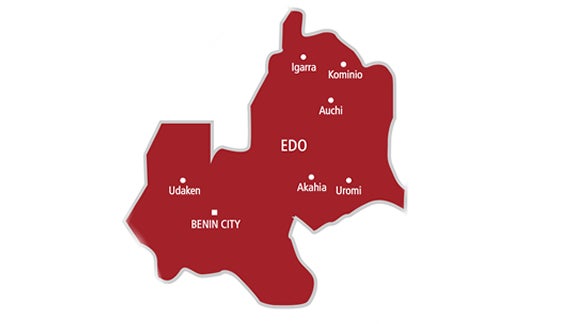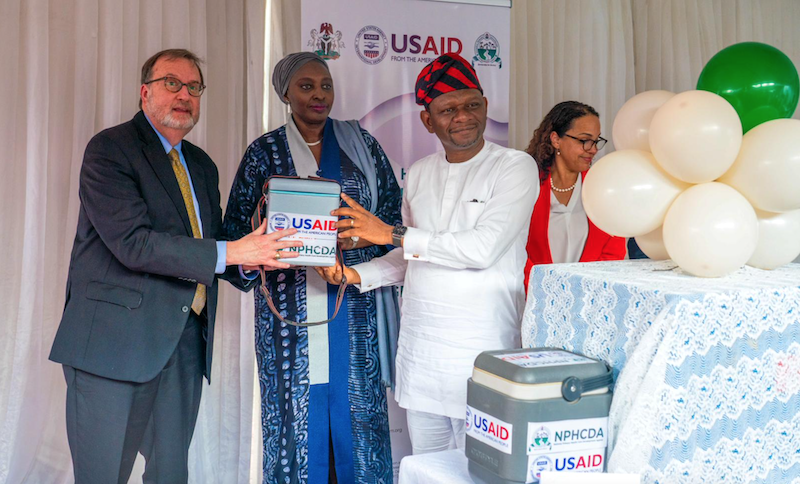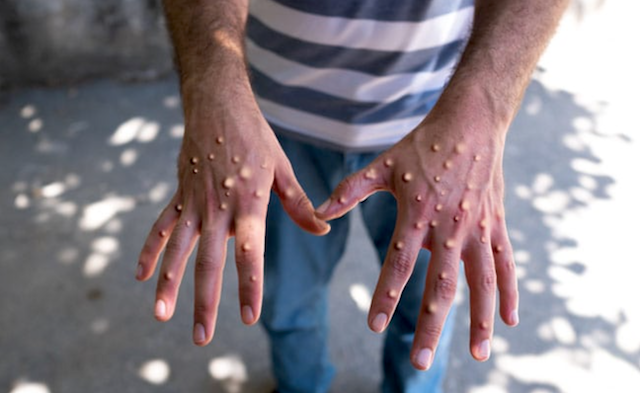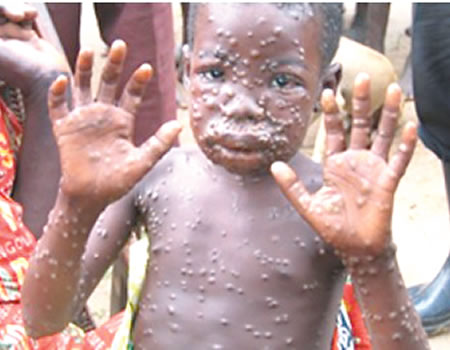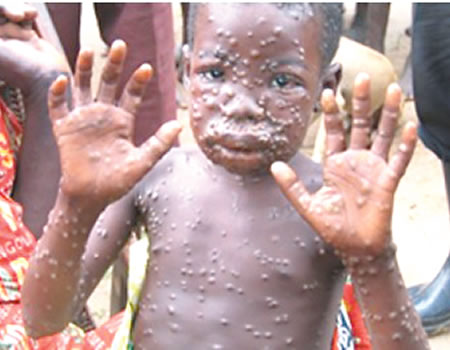The Lagos State Commissioner for Health, Prof. Akin Abayomi, has expressed concern about the potential risk of mpox clade 1b transmission into the state. Abayomi said this during a news conference by the state Ministry of Health on Mpox on Tuesday in Lagos.
“We are worried that there is a potential that this virus can be imported into Lagos because there are multiple airline routes and shipping routes that could bring passengers or persons or goods that are contaminated with this clade. That is of concern to us in Nigeria, in Lagos, and to the continent,” he said.
The clade Ib mpox outbreak, which began in September 2023 in the Democratic Republic of the Congo, is having an increasing number of cases in the country.
The virus has also spread to Cameroon, Rwanda, Burundi, among other countries.
Abayomi acknowledged the risk and virulence of the clade 1b variant, noting that the pathogen could adversely affect the welfare, well-being, and economic activity of multiple countries.
To mitigate the risk, Abayomi disclosed that the state had activated an Emergency Operation Centre and a statewide public health awareness campaign to educate the public on Mpox.
According to him, the proactive strategy is to enlighten residents on Mpox risk, and how to take proactive measures to curtail being exposed to the virus should the situation arise.
“Lagos knows that it needs to be proactive because of the density of our population, the risk that any contagion that is imported into Lagos can easily spread from person to person,” he said.
The commissioner stressed that there were no active mpox cases in Lagos.
He said that the state was upscaling its epidemic preparedness and response plan as done in its fight against Ebola, COVID-19, cholera, lassa fever, and marburg.
He said the state converged local and international experts to assess its risk levels, public health countermeasures and treatment to prevent disruption of economic livelihood and safety if transmission occurs.
The commissioner said the meeting was held with support from WHO, UNICEF, Nigerian Institute of Medical Research, Nigeria Centre for Disease Control, Nigerian Public Health Development Agency, and the Federal Port Health Services.
“We are proactively preparing to ensure that we have the right ability to recognise it, the correct ability to diagnose it, the correct ability to speciate it, to distinguish the various mutants of mpox, either clade 2a, clade 1a, or clade 1b, and the correct environment to manage and treat it.
“At the same time, we will be preparing our residents through a massive public health campaign so that they can recognise the risk associated with contracting mpox.
“The risk associated with transmitting it, and the ability to recognise it if it should show up in your vicinity so that you can bring it to the attention of the Lagos State Ministry of Health,” he said.
The commissioner maintained that the state was prepared and had an evolving strategy to tackle mpox if transmitted to the state.
On vaccines, Abayomi said there are ongoing debates on its deployment for citizens who might require it in the country.
According to WHO, Mpox, formerly known as monkeypox, is an infectious disease caused by the monkeypox virus, a species of the genus Orthopoxvirus.
There are two distinct clades of the virus: clade I (with subclades Ia and Ib) and clade II (with subclades IIa and IIb). In 2022 to 2023 a global outbreak of mpox was caused by the clade IIb strain.
Clade I causes more severe illness and deaths and is endemic to Central Africa while clade II is less severe, and endemic to West Africa.
Mpox causes rashes, flu-like symptoms and pus-filled lesions. The disease can be fatal, especially for children, pregnant women and those with suppressed immune systems.
It is transmitted through close contact, such as sex, skin-to-skin contact and talking or breathing close to another person.
Animal to human transmission of mpox occurs from infected animals to humans from bites or scratches, or during activities such as hunting, skinning, trapping, cooking, playing with carcasses, or eating animals.
Mpox has been causing widespread devastation in several regions of Africa, prompting WHO to declare it a Global Health Emergency on Aug. 16, saying it requires urgent and coordinated international action to contain its spread and mitigate its impact.
Mpox is treated with supportive care for symptoms such as pain and fever, with close attention to nutrition, hydration, skin care, prevention of secondary infections and treatment of co-infections, including HIV where present.
Data from Africa Centres for Disease Control and Prevention (AfricaCDC) showed that 3,101 confirmed and 15,636 suspected mpox cases have been reported from 12 African countries, resulting in 541 deaths.
According to NCDC, 40 confirmed mpox cases and zero deaths were recorded in 19 states and the FCT from the beginning of 2024.
Data shows that mpox cases in Nigeria are clade II, with concerted efforts ongoing to prevent transmission of mpox clade Ib to the country.
